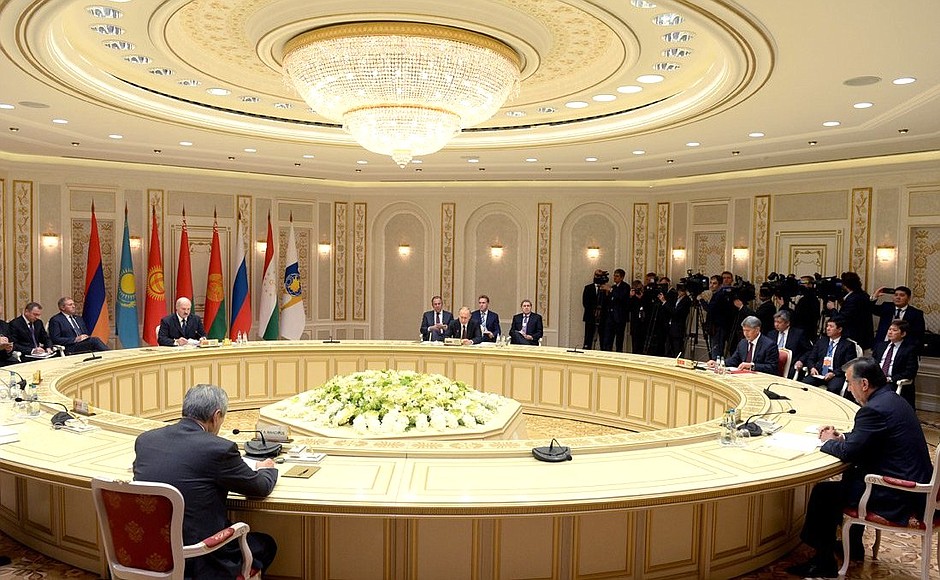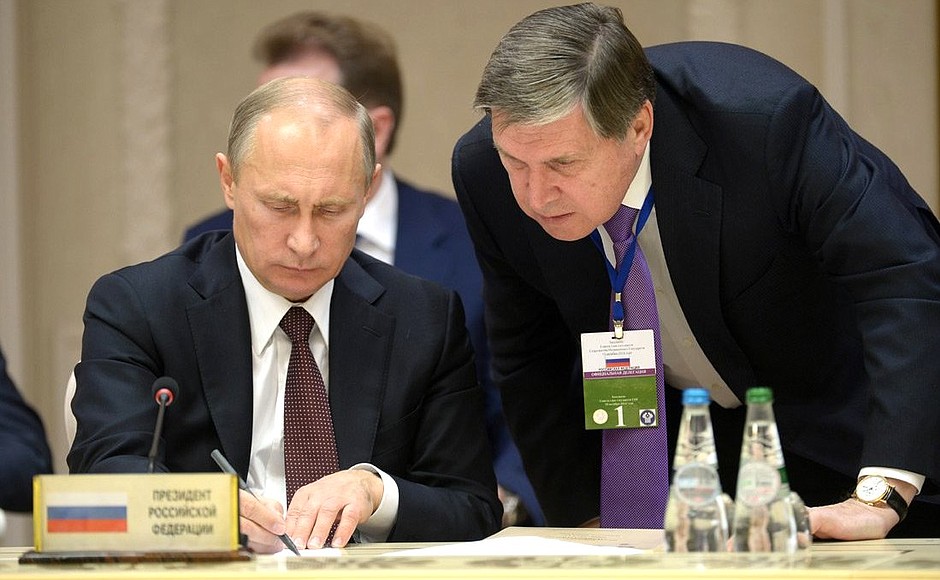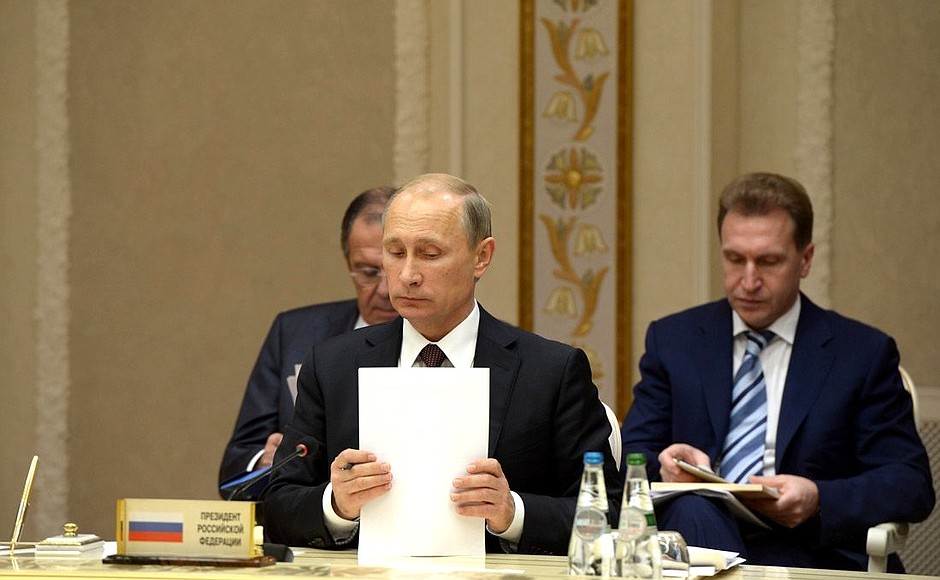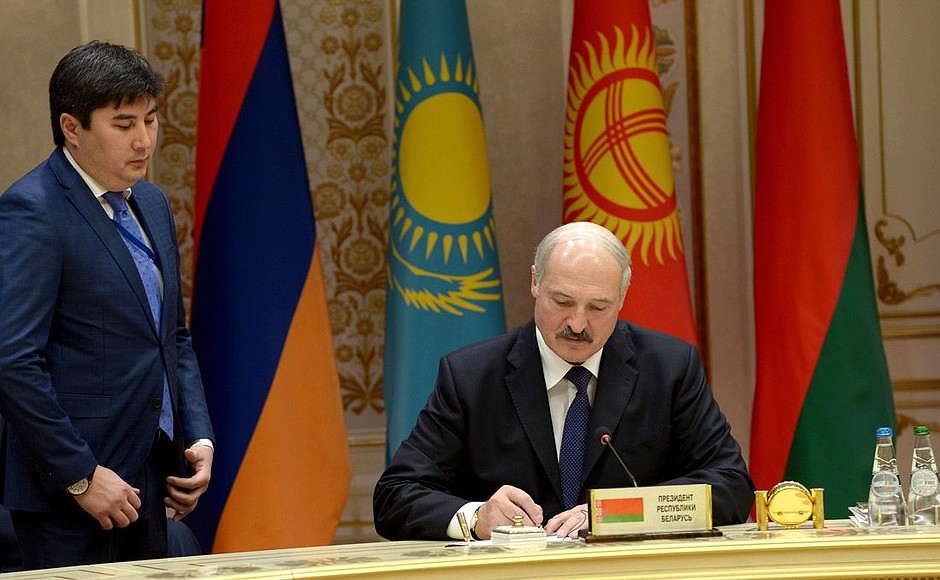See also
Taking part in the meeting were the presidents of Belarus, Kazakhstan, Kyrgyzstan, Russia and Tajikistan – EurAsEC’s founding member states.
The decision to end the organisation’s activity was made because a new integration organisation, the Eurasian Economic Union, will soon start operation as the relevant treaty on its establishment comes into force on January 1, 2015.
* * *
Speech at EurAsEC Interstate Council meeting
President of Russia Vladimir Putin: Colleagues,
Today we are reviewing the work of the Eurasian Economic Community, which was founded exactly 14 years ago on October 10, 2000.
Let me say that we have accomplished much over this time. EurAsEC has fulfilled the most important mission of ensuring on-going development of Eurasian integration and laid the foundation for establishing the Customs Union and the Common Economic Space between Russia, Belarus and Kazakhstan.
EurAsEC has put together a solid legal base for multilateral cooperation with 215 agreements and treaties on a wide variety of areas, from trade and investment to high technology and humanitarian ties. We have set common rules of work in a common market with total population of more than 170 million people and combined economic potential that comes to more than 4 percent of global GDP.
The EurAsEC Anti-Crisis Fund with capital of $10 billion has proved its worth and provided member states with the needed assistance in stabilising state finances during the global economic crisis.
At the last meeting in December 2012 in Moscow, we decided that EurAsEC would end its activity on January 1, 2015, following the start of a new and more advanced integration organisation, the Eurasian Economic Union. In accordance with our instruction, the EurAsEC Integration Committee has taken the measures required to prepare for the end of EurAsEC’s activity. Financial and organisation matters have been settled and a draft agreement ending the organisation’s work has been prepared. We will sign it today.
I want to stress the point that we must not lose any of the rich legacy we have received from EurAsEC. Implementation of most of the agreements and other documents signed within EurAsEC’s work will continue.
The practical experience built up by EurAsEC’s managing bodies, the Integration Committee and the Secretariat, is also important and we should put it to use in the Eurasian Economic Commission’s work.
We should also note the role that the EurAsEC Inter-parliamentary Assembly played in providing the legislative support for our integration work. It will also end its activity. The agreement on the Eurasian Economic Union does not for now provide for establishing a similar body, but it is possible that we could come back to this matter.
The EurAsEC Court’s powers are being transferred to the Eurasian Economic Union’s Court. The court will be located in Minsk and we hope will begin work on January 1, 2015.



